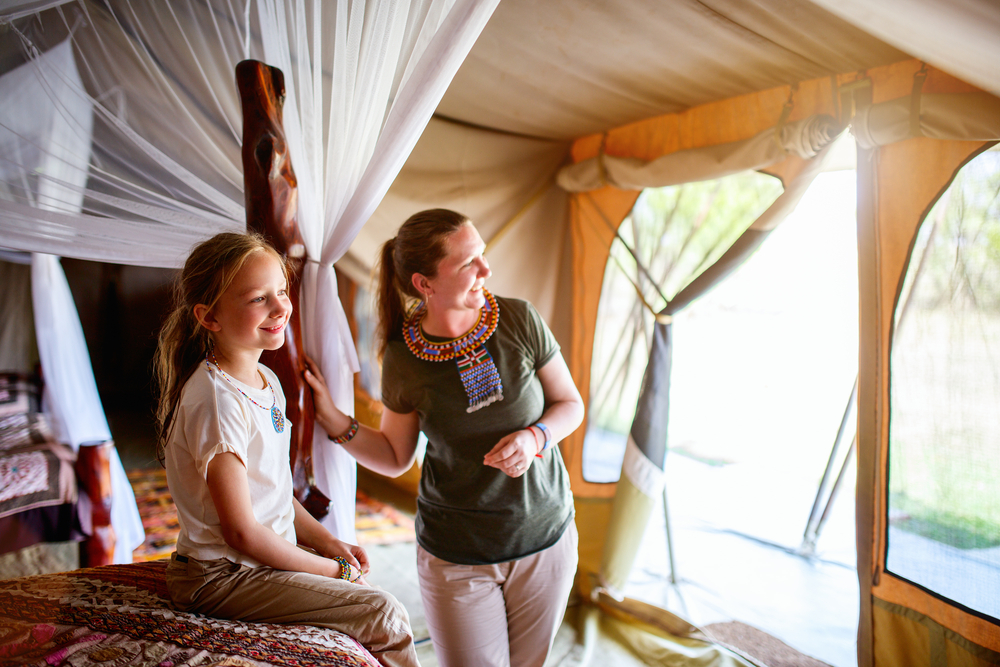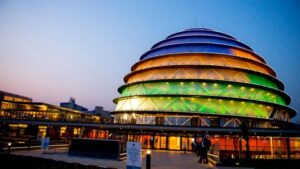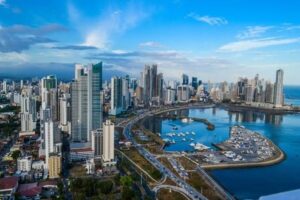Introduction
Ready to embark on an unforgettable journey through the safest Southern African countries? Think of it as flipping through the pages of a travel magazine, except this time, you’re the protagonist, and the adventure is real. From the shimmering shores of secluded beaches to the wild heart of untamed landscapes, Southern Africa beckons with promises of safety, wonder, and discovery.
So, if you’re craving a taste of adventure without compromising on peace of mind, dive into the vibrant tapestry of cultures, landscapes, and experiences awaiting you in Southern Africa’s safest havens. Make memories worth sharing!
1. Botswana
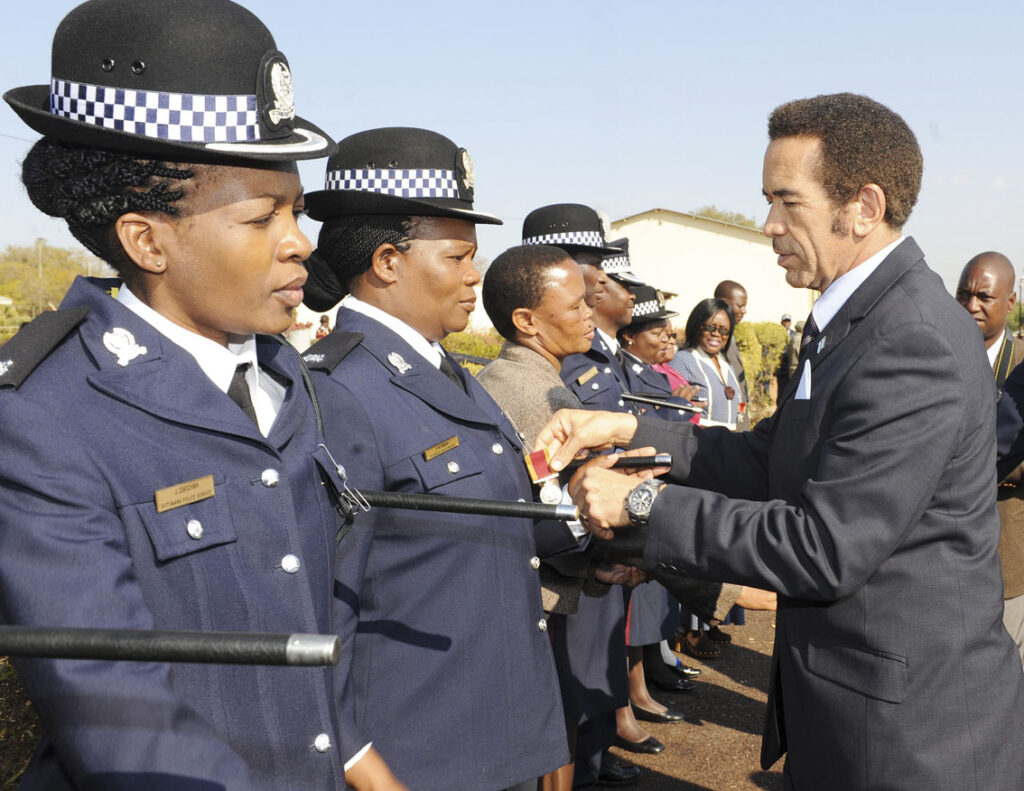
Known for its wildlife and natural beauty, Botswana is considered one of the safest countries in Africa.
Pros
- Has a stable democracy and a relatively low crime rate compared to other African countries, making it a safe destination for travelers
- Is committed to sustainable tourism practices, with many lodges and safari operators focusing on eco-friendly initiatives and conservation efforts to protect the country’s natural resources and wildlife
- Is renowned for its incredible wildlife, including elephants, lions, giraffes, and more
Cons
- Is generally considered one of the more expensive safari destinations in Africa, with luxury lodges and camps often commanding premium prices
- Experiences extreme temperatures, with hot summers and cold winters, particularly in the desert regions.
- Boasts stunning landscapes, from the lush wetlands of the Okavango Delta to the vast expanses of the Kalahari Desert, offering diverse and picturesque scenery for travelers to explore.
- Prioritizes the safety and security of tourists, particularly in popular tourist destinations such as the Okavango Delta and Chobe National Park
- Botswana’s community policing initiatives foster strong relationships between law enforcement agencies and local communities, enhancing safety and crime prevention efforts across the country
- Implements strict regulations to protect its natural resources and wildlife
2. Namibia

With its stunning landscapes, low crime rates, and stable political environment, Namibia is also a safe destination.
Pros
- Is renowned for its stunning landscapes, including the towering sand dunes of the Namib Desert, the rugged terrain of Damaraland, and the vast salt pans of Etosha National Park
- Offers excellent opportunities to spot elephants, lions, rhinos, and other iconic African species
- Is a paradise for adventure seekers, with opportunities for hiking, dune boarding, quad biking, and hot air ballooning
Cons
- Public transportation options in Namibia are limited, especially outside major cities
- Experiences extreme temperatures, with scorching heat during the day and cold nights, particularly in desert regions
- Is recognized for its low crime rates, particularly violent crime, compared to many other countries in the region
- Has maintained a stable democracy with peaceful transitions of power
- Has a well-developed tourism infrastructure, including quality accommodations, transportation networks, and tourist facilities
3. Mauritius
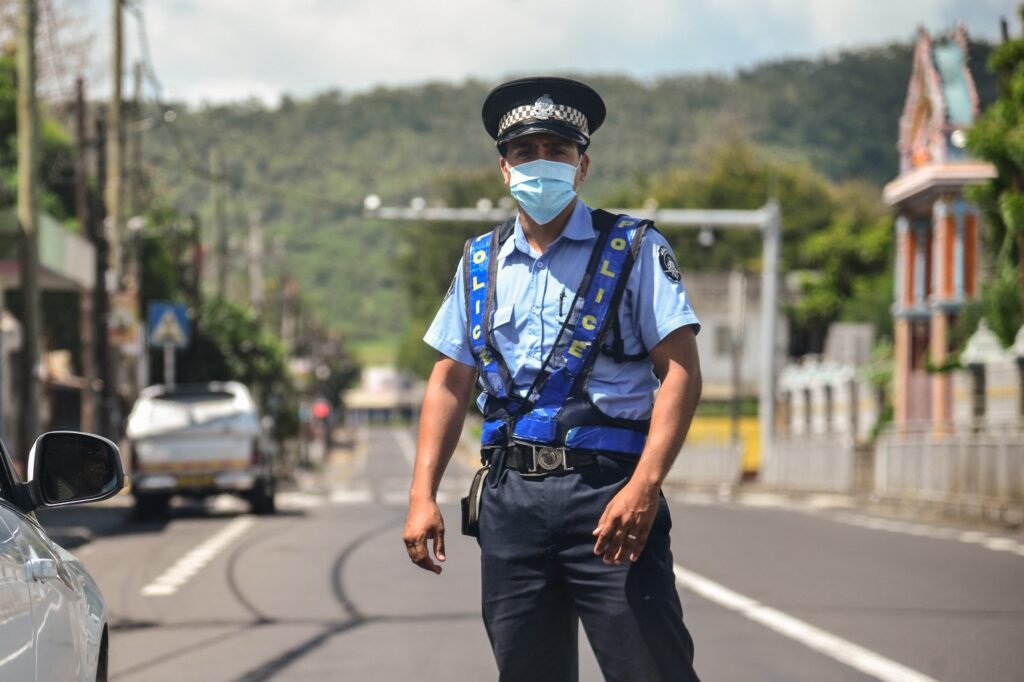
Although geographically more to the east, Mauritius is often considered part of the Southern African region. It’s a popular tourist destination known for its beautiful beaches and safety.
Pros
- Can relax on picturesque shores, swim in the turquoise lagoons, and enjoy a variety of water sports and activities
- Is a melting pot of cultures, with influences from Indian, African, Chinese, and European traditions
Cons
- Can be relatively expensive for travelers, especially in tourist areas and luxury resorts
- Can become crowded with visitors, particularly from Europe and South Africa
- Has low crime rates and a stable political environment, contributing to a secure and welcoming atmosphere for visitors
- Is easily accessible from major cities around the world, with direct flights to Sir Seewoosagur Ramgoolam International Airport in Plaine Magnien
- Is a popular destination for families, with child-friendly attractions, accommodations, and activities
4. Zambia
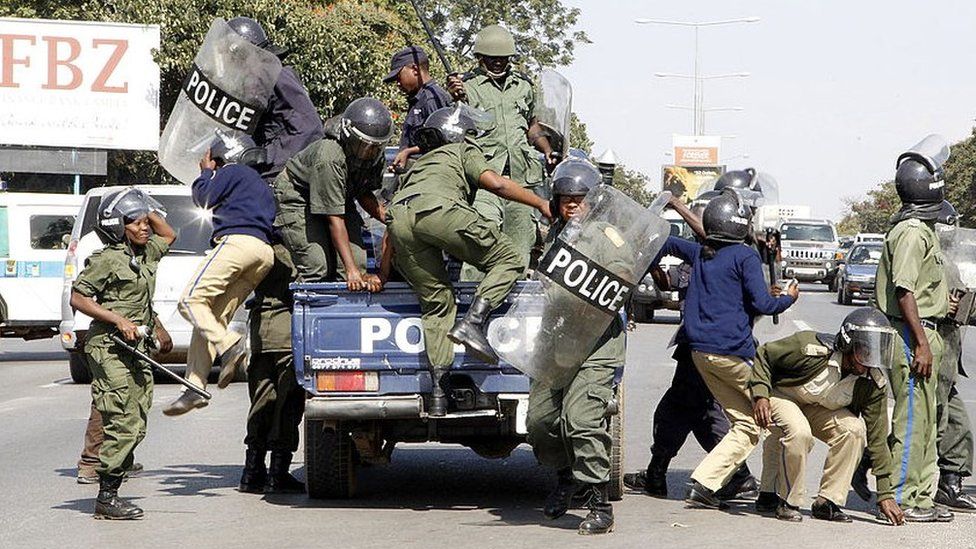
Zambia boasts attractions like Victoria Falls and offers a relatively safe travel experience compared to some other African countries.
Pros
- Is renowned for its stunning landscapes, including the majestic Victoria Falls, one of the Seven Natural Wonders of the World
- Enjoy authentic safari experiences in pristine wilderness areas, with fewer crowds compared to other African safari destinations
- Can expect to receive a warm welcome and genuine interactions with local communities during stay
Cons
- Certain regions of Zambia are prone to tropical diseases such as malaria
- Some remote areas may lack facilities and services catered to tourists
- Boasts diverse ecosystems, such as the Zambezi River, Luangwa Valley, and Lower Zambezi National Park, offering unparalleled opportunities for wildlife viewing and outdoor adventures
- Offers a wide range of adventure activities, including white-water rafting on the Zambezi River, bungee jumping off Victoria Falls Bridge, walking safaris in South Luangwa National Park, and canoeing safaris on the Lower Zambezi River
- Has relatively low crime rates compared to other countries in the region
- Has a stable democracy and a history of peaceful transitions of power since gaining independence from British colonial rule in 1964
5. Mozambique
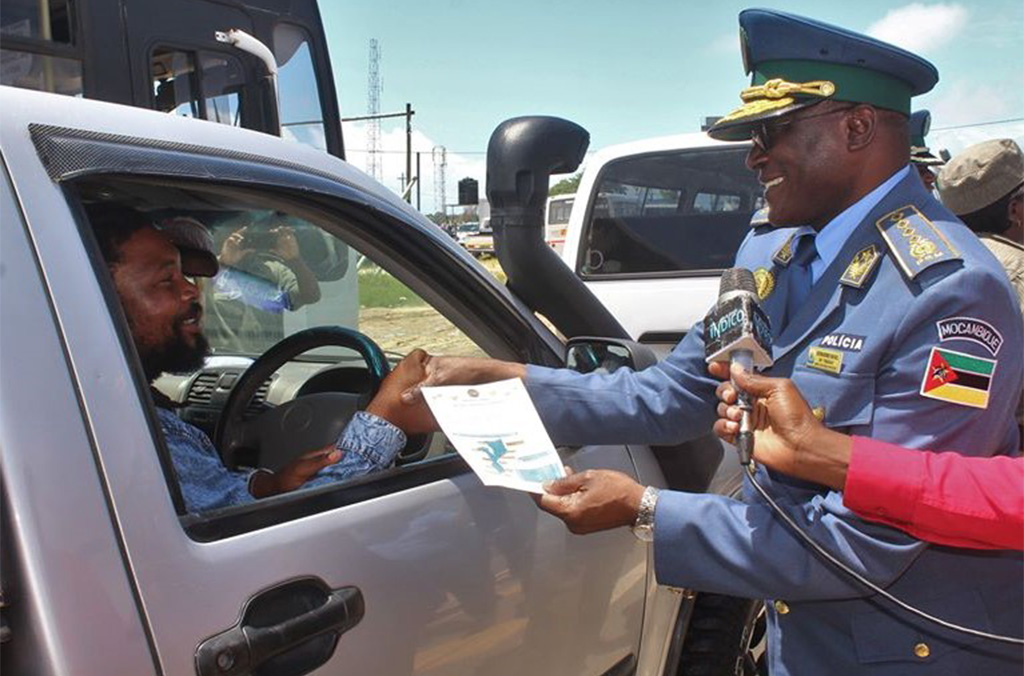
Mozambique is home to a rich tapestry of cultures, influenced by African, Arab, and Portuguese heritage.
Pros
- Is blessed with stunning coastline along the Indian Ocean, featuring pristine white-sand beaches, clear turquoise waters, and vibrant coral reefs
- Boasts diverse ecosystems inland, including national parks and reserves
Cons
- Faces health challenges, including malaria and other tropical diseases
- Portuguese is the official language of Mozambique, which may present a language barrier for travelers who do not speak the language
- Offers a range of adventure activities for thrill-seekers, including deep-sea fishing, kayaking, sailing, and dhow cruises
- Is home to several national parks and reserves, such as Gorongosa National Park and Niassa Reserve, where visitors can spot a variety of wildlife, including elephants, lions, and hippos
Overview of Safest Southern African Countries
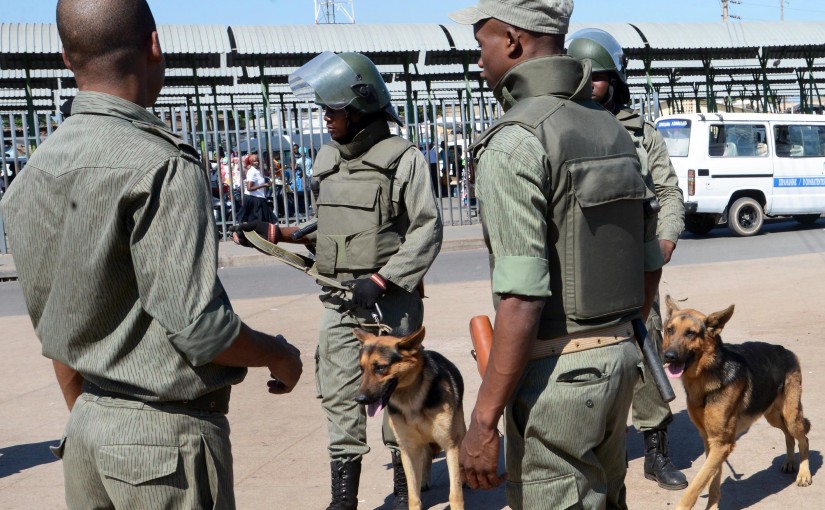
Safest Southern African countries provide travelers with a harmonious blend of security and adventure. From pristine beaches to untamed wilderness, visitors can explore diverse landscapes and vibrant cultures. These destinations prioritize the safety and well-being of travelers, ensuring unforgettable experiences amidst Africa’s most captivating scenery.
Whether marveling at majestic wildlife, indulging in water sports, or immersing in local traditions, Southern Africa promises a journey filled with discovery and relaxation. With a focus on safety and hospitality, these countries welcome travelers to explore the beauty and diversity of the region with confidence and peace of mind.
How To Choose Safest Southern African Countries
Choosing the safest Southern African country for your travels involves considering several factors. Here’s a guide to help you make an informed decision:
- Research:
Start by researching the safety situation in different Southern African countries. Look for travel advisories issued by your government or reputable international organizations. Websites such as the U.S. Department of State’s Travel Advisories or the UK Foreign, Commonwealth & Development Office (FCDO) provide up-to-date information on safety and security concerns in various countries.
- Crime Rates:
Examine the crime rates in the countries you’re considering. Look not only at overall crime rates but also specific types of crime that might affect travelers, such as petty theft, scams, or violent crime. Countries with lower crime rates overall and fewer incidents targeting tourists are generally safer options.
- Political Stability:
Assess the political situation in each country. Stable governments and peaceful environments are conducive to safer travel experiences. Avoid countries with ongoing political unrest, civil conflicts, or recent history of instability.
- Health and Infrastructure:
Consider the quality of healthcare and infrastructure in each country. Access to medical facilities, emergency services, and sanitation can impact your safety and well-being while traveling. Choose countries with reliable healthcare systems and adequate infrastructure to support tourists.
- Tourist Infrastructure:
Evaluate the availability of tourist infrastructure and services in each country. Established tourism industries often prioritize the safety and security of visitors by providing well-regulated accommodations, transportation options, and guided tours.
- Natural Hazards:
Take into account natural hazards prevalent in the region, such as tropical diseases, extreme weather conditions, or geological risks like earthquakes or volcanic activity. Choose countries where you can minimize exposure to these hazards or where adequate precautions are in place.
- Local Culture and Customs:
Familiarize yourself with the local culture, customs, and norms of each country. Respect for local traditions and understanding cultural sensitivities can contribute to a safer and more enjoyable travel experience, minimizing the risk of misunderstandings or conflicts.
- Personal Comfort Level:
Ultimately, consider your personal comfort level and risk tolerance. Even in relatively safe countries, unforeseen incidents can occur. Trust your instincts and choose destinations where you feel confident and prepared to navigate any challenges that may arise.
Pros & Cons of Safest Southern African Countries
Pros
- Boast stunning landscapes, including pristine beaches, vast deserts, lush forests, and diverse wildlife, offering unparalleled natural beauty for exploration and adventure
- Are home to rich and diverse cultures, languages, and traditions, providing opportunities for immersive cultural experiences and interactions with local communities
- Engage in a wide range of outdoor activities, such as safari tours, hiking, diving, snorkeling, and water sports, amidst the region’s breathtaking scenery
- Are known for their warm and welcoming hospitality, with friendly locals eager to share their culture, traditions, and stories with visitors.
Cons
- Can be expensive, particularly when considering accommodations, guided tours, entrance fees to national parks, and other expenses associated with tourism
- May lack essential services, including reliable transportation, healthcare facilities, and accommodations
- Experiences a range of climates, from hot and arid to humid and tropical
What to Watch Out For
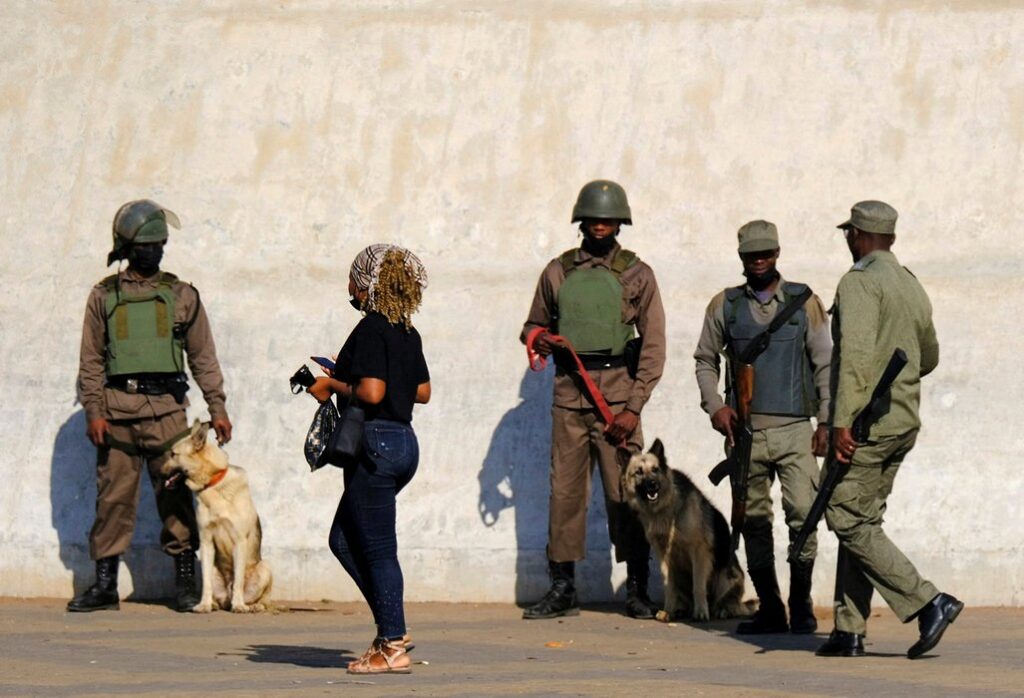
- Remain vigilant against petty theft, pickpocketing, and scams, especially in crowded tourist areas, public transportation, and markets
- Be aware of food and water safety, and carry essential medications and first-aid supplies
- Exercise caution when driving or traveling by road, as road conditions, signage, and driving standards may vary
- Respect local customs, traditions, and cultural norms to avoid causing offense or misunderstanding
- If engaging in wildlife viewing activities, such as safaris or nature walks, follow the guidance of experienced guides and maintain a safe distance from animals
Pro Tips
- Invest in comprehensive travel insurance that covers medical emergencies, trip cancellations, and other unforeseen events
- Familiarize yourself with the local currency and exchange rates before your trip
- Pack light, versatile clothing suitable for varying weather conditions and cultural sensitivities
- Sample local cuisine for authentic culinary experiences, but be cautious of street food and ensure that meals are prepared hygienically to avoid foodborne illnesses
- Purchase a local SIM card or activate an international roaming plan to stay connected with family, friends, and emergency contacts
- Document your travels through photography, journaling, or sketching to preserve cherished memories and share your experiences with others
Recap
Southern African countries beckon travelers with safety, diverse landscapes, and vibrant cultures. From stunning beaches to majestic wildlife, the region offers unforgettable experiences.
Visitors can immerse themselves in rich traditions, explore natural wonders, and indulge in adventure activities. Despite occasional challenges, these destinations provide a safe and rewarding journey for those seeking to explore the beauty and diversity of Southern Africa.


